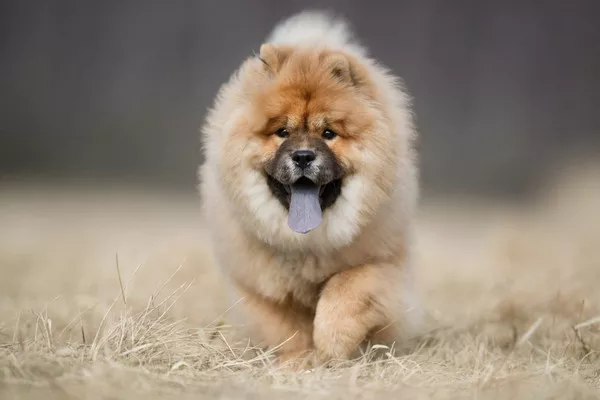Chow Chows, with their distinctive lion-like manes and dignified demeanor, are a breed of dogs that have captured the hearts of many. These furry companions are known for their loyalty, independence, and unique appearance. If you’re a proud owner of a Chow Chow or considering bringing one into your home, it’s crucial to understand the specific care guidelines and food contraindications that will help keep your furry friend healthy and happy.
1. The nutritional needs of Chow Chows:
Protein: Protein is essential for muscle growth, repair, and overall bodily function. Look for dog food that contains high-quality animal-based proteins as the primary ingredient. Sources like chicken, turkey, beef, and fish are good options. The protein content in their diet should generally be around 18-25% of their daily caloric intake.
Fat: Fat provides energy and supports healthy skin and coat. Aim for a moderate fat content of about 8-15% in their diet. Look for sources of healthy fats, such as fish oil and flaxseed, which also provide omega-3 fatty acids.
Carbohydrates: Carbohydrates provide energy, but dogs, including Chow Chows, are not obligate carbohydrate consumers. Opt for complex carbohydrates like whole grains (e.g., brown rice, oatmeal) and vegetables, which offer fiber and nutrients. Carbohydrates should make up a smaller portion of their diet, usually around 30% or less.
Vitamins and Minerals: Dogs need a variety of vitamins and minerals for proper functioning. A balanced commercial dog food or a home-cooked diet with a variety of ingredients will typically provide these nutrients. If you’re preparing homemade meals, consider consulting a veterinarian to ensure you’re meeting their requirements.
Calcium and Phosphorus: These minerals are crucial for bone health. Maintaining the proper ratio of calcium to phosphorus is important, especially in growing puppies. Avoid feeding them bones, as they can lead to dental problems and potential gastrointestinal issues.
Avoid Grapes and Raisins: Chow Chows, like many breeds, should not consume grapes or raisins, as these can be toxic and lead to kidney damage.
Avoid Onions and Garlic: Onions and garlic contain compounds that are harmful to dogs and can lead to health issues like anemia. Be cautious when preparing meals that contain these ingredients.
Fresh Water: Always provide access to clean, fresh water for your Chow Chow. Proper hydration is essential for their overall health.
2. Factors to consider when choosing dog food:
Puppies:
High protein: Puppies are in the growth and development stage and need more nutrition to support the development of bones and muscles.
Digestible food: The digestive system of puppies is not yet fully developed, so they need easy-to-digest food.
Wet food: Your puppy’s teeth may be growing and will require an easy-to-chew food, consider wet food or chopped food.
Adult dog:
Balanced Diet: Adult dogs need to meet basic nutritional needs and maintain a healthy weight. High-quality protein, healthy fats, and moderate amounts of carbohydrates are important.
Joint development: Large dogs may require additional nutritional support for joint health, while smaller dogs may require fewer calories.
Adequate Water: Adult dogs need adequate water to maintain body fluid balance and prevent dehydration.
Senior Dog:
Eat Less: Older dogs have a reduced metabolic rate and therefore need fewer calories to avoid overweight and obesity. At the same time, older dogs may have reduced activity levels and so require less energy.
Calcium and vitamin D: The bone health of older dogs may be compromised, and owners can meet their needs by providing them with foods rich in calcium and vitamin D, such as fish, dairy products, and leafy green vegetables.
Adequate protein: Senior dogs have progressively aging body tissues and are prone to muscle and bone damage. Protein is a key nutrient for bone development and repair.
3. Nutrition and Food Contraindications
Avoid fatty cuts and processed meats.
Foods to Avoid: Some human foods are toxic to dogs, including chocolate, grapes, raisins, onions, and garlic. These can lead to serious health issues, so it’s best to keep them out of reach.
Sensitive Stomachs: Chow Chows are known to have sensitive stomachs. Introduce new foods gradually and monitor for any adverse reactions.
4: Health and Medical Care
Vaccinations: Follow your vet’s recommended vaccination schedule to protect your dog from common diseases.
Regular Check-ups: Annual check-ups help catch any potential health issues early. This is particularly important as some genetic conditions are more common in Chow Chows.
Dental Health: Chow Chows are prone to dental problems. Brush their teeth regularly and provide dental chews to maintain oral hygiene.
5: Temperature Sensitivity
Heat: They are sensitive to heat, so ensure they have access to shade and water in warm weather.
Cold: Their dense coat provides insulation, but they can still get cold in extreme temperatures. Consider a doggy sweater in colder months.
Conclusion
In conclusion, Chow Chows are wonderful companions that require specific care to thrive. From grooming and exercise to nutrition and health care, these guidelines will help you provide the best possible life for your furry friend.


